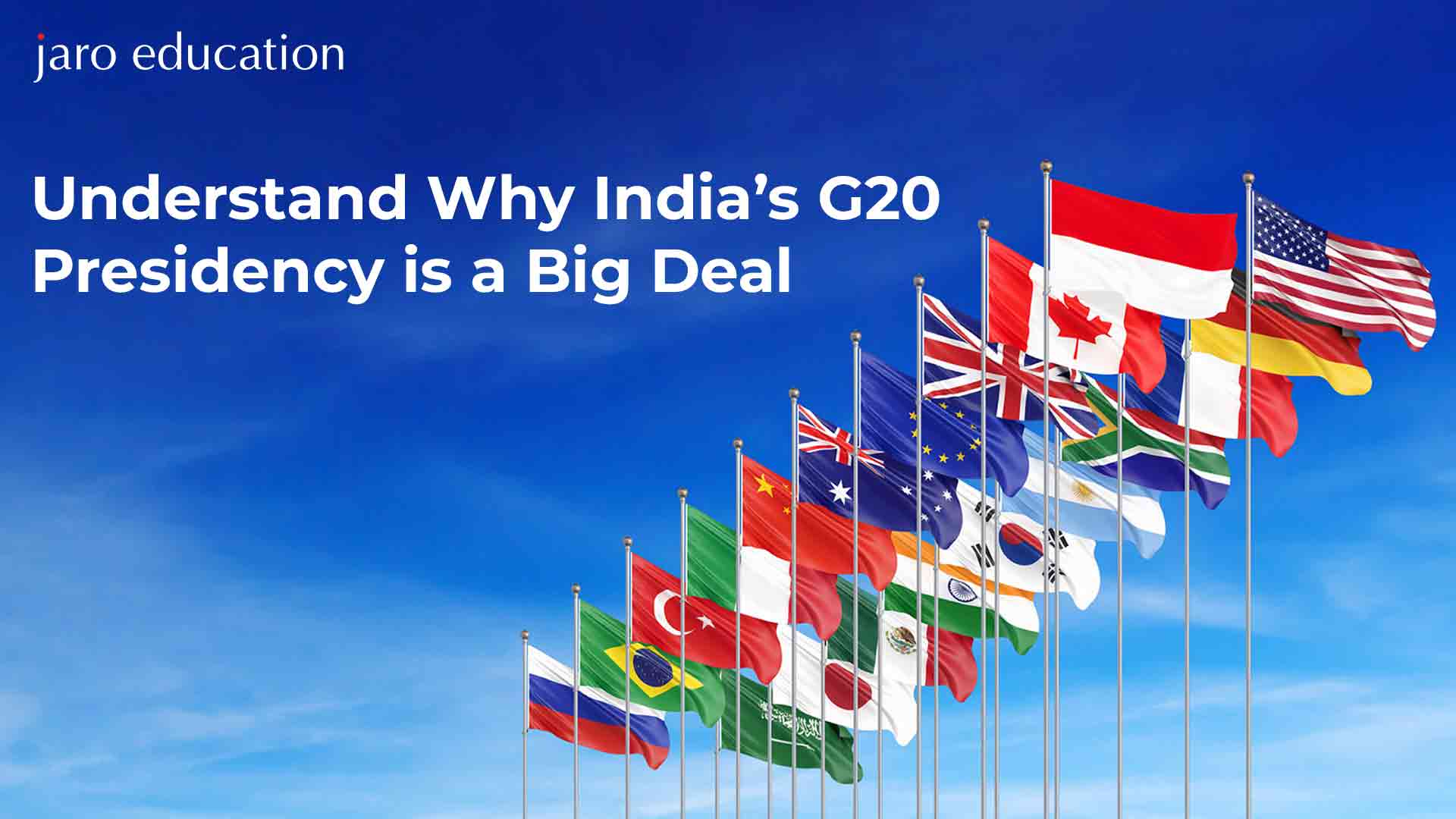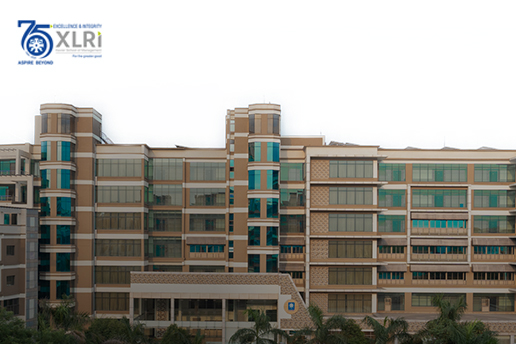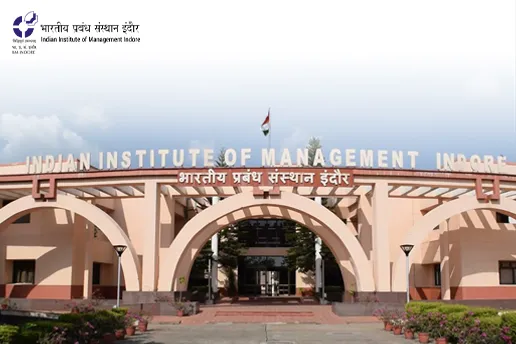
- jaro education
- 17, January 2024
- 5:00 am
India, a country with a rich history dating back thousands of years, has a unique and increasingly influential place in the contemporary world. As one of the world’s largest and most populous nations, India occupies a prominent position on the global stage, with significant political, economic, cultural, and strategic importance.
Let's delve into India's global position in the 21st century.
1. Geopolitical Significance
India’s strategic location in South Asia makes it a critical player in regional and global geopolitics. It shares borders with Pakistan, China, Nepal, Bhutan, Bangladesh, and Myanmar, positioning it at the crossroads of South Asia and Southeast Asia. Its geographical proximity to the Indian Ocean gives it a privilege in the maritime security of the region, making it a crucial partner for countries like the United States.
Table of Contents
2. Economic Powerhouse
In recent years, India has emerged as one of the fastest-growing major economies in the world. With a large and youthful workforce, a thriving services sector, and a burgeoning entrepreneurial culture, India’s economic potential is substantial and thus India’s participation in global economic forums like the G20 and its role in international economic institutions like the World Trade Organisation (WTO) underscores its economic significance
3. Nuclear Power and Strategic Influence
India is one of the few countries recognised as a nuclear weapons state. Its nuclear capability adds a layer of strategic significance to its foreign policy. India’s nuclear doctrine emphasises a “no-first-use” policy, but its deterrence capability plays a crucial role in regional security dynamics.
4. Cultural and Soft Power
India’s influence extends well beyond its geographical borders. It boasts a rich cultural heritage that has left a lasting impact on the world. From yoga to Bollywood to cuisine, Indian culture has a global reach and resonance. Also, Indian literature, art, music, and philosophy have transcended borders and continue to inspire people worldwide.
5. Contributions to Global Issues
India actively engages in addressing pressing global challenges. It plays a key role in international forums such as the United Nations, where it has contributed to peacekeeping missions and advocated for issues like climate change mitigation, sustainable development, and global health.
6. Challenges and Aspirations
While India’s place in the world is undoubtedly significant, it also faces substantial challenges. These include poverty, inequality, infrastructure gaps, and regional security concerns. Managing its relationship with China and addressing domestic socio-economic disparities are critical aspects of its foreign policy.
G20 and its Importance
In the realm of international diplomacy and global governance, few opportunities carry as much significance as holding the presidency of the G20. For India, securing the G20 presidency is not just a matter of prestige; it is a strategic milestone that can shape its role on the world stage and influence global policies. The Group of Twenty, or G20, is a forum comprising 19 of the world’s largest economies plus the European Union, and it plays a crucial role in shaping global economic policies, trade, and international cooperation.
1. Importance of G20 Presidency for India to Enhance Global Visibility
When India presides over the G20, it gets a seat at the table with other influential nations, including the United States, China, Russia, and Germany. This enhanced global visibility can help India advocate for its interests and contribute to shaping international policies in alignment with its strategic goals. It also allows the country to engage in high-level discussions and negotiations on pressing global issues, such as climate change, trade, and global health.
2. Importance of G20 Presidency for India in Economic Diplomacy & Trade Opportunities
India’s G20 presidency is primarily focused on economic issues, making it an ideal platform for India to strengthen its economic diplomacy. India can leverage its presidency to foster stronger trade relationships, attract foreign investments, and promote its ‘Make in India’ initiative. By chairing meetings and negotiations within the G20, India can actively shape the discourse on trade liberalisation, investment facilitation, and economic reforms.
Furthermore, as a G20 presidency holder, India can work towards minimising trade barriers, improving the ease of doing business, and resolving trade disputes, all of which are critical for its economic growth and development.
3. Importance of G20 presidency for India to address global challenges
India faces a myriad of domestic and international challenges, ranging from climate change to terrorism to healthcare crises. As a G20 presidency holder, India gains a prominent platform to address these global challenges and advocate for solutions that align with its interests.
a. Climate Change
India can use its presidency to champion climate change mitigation efforts, emphasise sustainable development, and promote renewable energy sources. It can also advocate for fair and equitable climate financing mechanisms, taking into account the needs of developing nations.
b. Global Health
In the wake of the COVID-19 pandemic, India’s presidency can focus on strengthening global health systems, vaccine distribution, and pandemic preparedness. It can lead discussions on ensuring affordable and equitable access to vaccines and medicines for all nations.
c. Counterterrorism
India has been a victim of terrorism for many years. Its G20 presidency can provide a platform to rally international support for combating terrorism, including efforts to curb the financing of terror networks and promote intelligence sharing.
4. Importance of the G20 Presidency for India to Strengthen Multilateralism
The G20 represents a commitment to multilateralism and cooperation in an increasingly interconnected world. As a rising power, India has a vested interest in preserving and strengthening the multilateral order. Holding the G20 presidency allows India to play a pivotal role in revitalising global institutions and reinforcing the importance of diplomacy and dialogue.
Through its presidency, India can emphasise the significance of international law, dispute-resolution mechanisms, and diplomacy in resolving global conflicts, including those in its neighbourhood.
5. Importance of the G20 Presidency for India to Boost India’s Economy & Investment Climate
India’s G20 presidency can have a direct impact on its economy. Hosting the G20 summit requires significant investment in infrastructure and logistics, leading to economic stimulus and job creation. The global attention garnered during the presidency can also attract foreign investment and promote India as an attractive destination for business and trade.
Moreover, by showcasing its economic potential and commitment to reforms, India can gain the confidence of global investors and position itself as a key player in the global economic landscape.
6. Importance of the G20 Presidency for India to Foster Regional and Global Alliances
As the G20 presidency holder, India has an opportunity to strengthen its regional and global alliances. By engaging constructively with other G20 members, India can build trust and cooperation, both regionally and globally.
For example, during its presidency, India can work towards resolving long-standing issues with neighbouring countries, which can have positive spillover effects on regional stability. Additionally, it can foster alliances on issues of common concern, such as climate change, terrorism, and economic development.
7. Importance of G20 presidency for India to showcase India’s cultural & soft power
India’s G20 presidency also offers a unique platform to showcase its rich cultural heritage and soft power. Hosting world leaders in India provides an opportunity to highlight the nation’s diverse culture, art, and traditions. This can contribute to promoting tourism, cultural exchange, and people-to-people connections.
Furthermore, it can help dispel stereotypes and misconceptions about India, fostering a more nuanced and positive global perception.
Conclusion
India’s G20 presidency provides a golden opportunity for India to assert its role as a global leader, address pressing global challenges, strengthen its economy, and foster regional and global alliances. It is not merely a matter of prestige but a strategic imperative that can shape India’s future trajectory in the complex and interconnected world of international politics and diplomacy. As India takes on the mantle of the G20 presidency, the world will be watching closely to see how it seizes this opportunity to contribute to global solutions.











